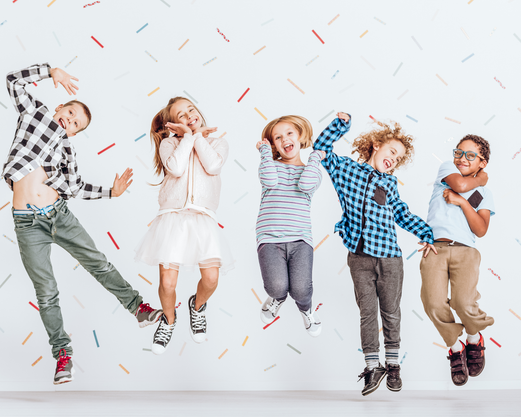|
In this era, where mental health awareness is on everyone’s radar, there seems to be a real focus in the parenting world to “make” our children happy. For many parents, this urge to keep our children happy is a driven by our own discomfort and fear. With rising mental health problems amongst children and adults, it’s no wonder we are grabbing on to anything that we know will bring smiles to our favourite little people’s faces or stem the flow of tears. But, how effective are our strategies to raise happy people? Are we giving them the tools to create their own inner happiness or are we promoting happiness as something experienced through the next emotional fix? We need to ask ourselves, are we setting our children up for long term inner contentment or short-term bursts of ecstasy? Realising that toxic positivity is now a thing, it’s time to ask ourselves how we can balance nurturing positive mindsets whilst accepting happiness isn’t something we can achieve consistently. It’s normal to experience a range of emotions. We’ve done the research for you and put together 10 things that you can do to help raise happy children and future adults! ACCEPT ALL FEELINGS
Choose to create a home environment that accepts all feelings. Our children need to know that emotions fluctuate between comfortable ones and uncomfortable ones! Despite being well intended, our approach to our child’s uncomfortable feelings can create a subconscious belief that they should feel happy which in turn can create feelings of shame or guilt around emotions such as anger, sadness, embarrassment etc. There’s an important distinction between accepting behaviour and accepting feelings and it’s important to find the middle ground, so that children understand that happiness is not destination to arrive at. RESILIENCE Resilience is the natural progression from accepting all feelings. If we can support the development of resilience, our children will be able to bounce back from failure, hurt, upset and anything that challenges them. Life isn’t always fair and there are always going to be things that happen that are outside of our control. Being able to ‘brush’ themselves off after a setback is key to building inner contentment. There are several ways to go about supporting resilience including teaching coping strategies, but conversations that develop self-awareness and emotional intelligence are also crucial. Children who know themselves well, understand their likes and dislikes and have a growing knowledge of how the brain works, will feel more empowered. GROWTH MINDSET Growth Mindset is a resilience building, coping strategy but also a way of living life! If we can support our children to develop a growth mindset, especially in areas of life that challenge them (for example, a school subject they find hard or a hobby they want to make progress with) we can gift them with the attitude they need achieve things that make them feel good, boosting their self-esteem and confidence. GRATITUDE There’s been much research into the effect of gratitude, showing that it can change the brain making a more positive mindset. Gratitude practise can become part of your family life, helping your child understand that they can find good things in bad days! KINDNESS Kindness doesn’t just make other people feel good! Being kind feels good for us to as it leads to the release of chemicals such as oxytocin and dopamine, which contribute to wellbeing. Being kind gives children something to be proud of which contributes to their self-worth. Kindness is a natural default for humans (it’s usually when our thoughts impact our emotions and behaviours that we see unkind behaviour, not an unkind person), so encouraging your child to show kindness promotes happiness. Self-kindness is also important. Being able to forgive themselves, soothe themselves and look after their wellbeing will mean our children will know how to ensure the release of those chemicals for themselves. MINDFULNESS Our world has become so busy and distracting. Finding mindfulness activities that suit your child (it isn’t all about meditating), will encourage them to be present in the moment and with their thoughts. Mindfulness activities for kids could include nature, body movements such as yoga or activities such as art, craft or colouring. With high levels of screen time, carving out mindful moments has become important. EXERCISE As for everyone, exercise supports health and also emotional wellbeing. For children the benefits of exercise include the release of serotonin (one of the brains well-being chemicals), improved mood, improved confidence, increased body positivity and it can break negative thinking through distraction and socialising. SLEEP Research shows that good sleep has a strong correlation with happiness. Lack of sleep activates the amygdala and impacts regulation skills, which in turn can lead to decreased self-worth because of how they feel about themselves because of the way they behaved, as well as how the consequences of it impact them. A bad night’s sleep can be the start of a vicious circle, where tiredness impacts decision making and impulse control, followed by the forming or consolidation of subconscious beliefs that can be formed by the outcomes of behaviour, such as punishments, tension between them and others etc. Which in turn then leads to a repeat of the cycle. FOOD Good nutrition is clearly linked to overall health and increased wellbeing. High sugar diets tend to lead to energy peaks and troughs that can impact children’s mood. Our busy lifestyles can make it easy to slide off track with healthy eating, so it’s helpful to undertake regular check ins to keep your family values for health accountable. BODY POSTURE A super simple, but effective technique to shift the way your child feels instantly. Emotion is held physically. We feel it in our bodies, hence the butterflies in our belly when we are nervous or the tight burning in our chest when we are angry etc. If your child is feeling unhappy, unconfident or nervous, get them to hold their head up, push their shoulders back and stand tall. Talk about the small but significant shift in how they feel. And a little extra tip … release the idea that your child’s happiness is your responsibility. You don’t have to make your child happy. This means you can release the pressure to take away difficult emotions, or place importance on material things to make them feel better. What is your responsibility is laying the foundations and building the scaffolding which nurtures their emotional intelligence and teaches them to know how to be happy. This is subtly different from their happiness being your responsibility. Our children are small, but they are individuals who will grow up to be living a life beyond us. As our children grow up, our aim is to be able to remove the scaffolding a bit at a time, revealing a stable, resilient and happy person.
0 Comments
Leave a Reply. |
Categories
All
Archives
April 2024
AuthorHey! I'm the founder, creator and voice of Ink and Scribbles. Sharing thoughts on child well-being and parenting that are based on my teaching and parenting experience, and NLP learning. |


 RSS Feed
RSS Feed